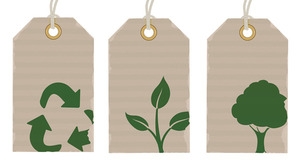How To Buy Cruelty-Free and Vegan Products

As an ambassador for animals’ rights, I often find myself answering the same question over and over again. It made me wonder if a “movement of conciseness “ (as I like to call it) is starting to gain momentum. I often hear people talk amongst themselves about being more conscious on their purchases and how often they also become frustrated because being “humane” and “sustainable” seems way too much trouble.
However, they are curious and they do want to know the facts.
This fascinates me. Sharing the little knowledge I have collected over the years with others makes me happy. People often ask me: How do you do it?
Simple. I read about products I buy. I do research. Yes, it does take longer to buy shampoo or toothpaste because you have to read the labels; you have to inform yourself about the parent companies of the products you purchase; you have to inform yourself about whicih ingredients are good for your health and which ingredients are dangerous. Yes, it might be inconvenient for others who are with you while your are shopping. But in the end we have to remember our actions shape our future. So take time to do your research and to look for alternatives.
Here are easy ways to find out if items are cruelty-free or vegan. They are practical tips on how to empower yourself as a consumer.
It is important to remember that labels -- such as “cruelty-free” and “not tested on animals” and “vegan” -- are not regulated by any organization or government. A company can say an item is “cruelty-free” even if it has been tested on animals during production or uses ingredients that have been tested on animals. Products can also be labeled as “vegan” yet have been tested on animals, simply because they do not contain animal ingredients.
There are some logos out there you can trust, such as Leaping Bunny or Vegan Action. Since labellig phrases can be misleading and not all cruelty-free and vegan options will be marked correctly, I think it’s always best to find out about brands for yourself.
DON’T TRUST SOURCES
It could be a sales representative, word-of-mouth information or even a blog. There’s no guarantee that the information they are giving you is accurate. When I first transitioned to a vegan lifestyle, I bought products that I had read were vegan. Six months later I emailed the brand and found out that, not only did the items contained animal ingredients, but they were also tested on animals.
CONTACT THE BRAND YOURSELF
“Cruelty-free” and “vegan” companies are often excited to answer your questions. They realize you are part of a new market they want to tap into. Most brands have a FAQ page that is kept up to date and often will include a question about animal testing. Almost all brands have a contact form on their site where you can ask them directly about animal testing and the use of animal ingredients.
KNOW WHAT TO ASK
A “cruelty-free” brand could mean anything. Be sure to ask if it has been tested as a finished product during production or uses ingredients that have been tested. It’s also a good idea to ask if it has been tested on animals to comply with regional laws and regulations. If you receive an unclear response, keep asking questions. When asking about animal ingredients, remember that not everyone knows what vegan products are. A company may say items are vegan, but they contain beeswax, instead of asking if they have vegan options, ask if they have items made without animal ingredients or animal derived ingredients.
At the end of the day, it's up to you to decide what and who you trust to give you this information. Don’t be shy about asking brands for clarification if they are not clear in their responses. Everyone needs to decide which items and brands they are comfortable using. In beauty and fashion, it's important to remember that while the consumer's voice goes far, the consumer's dollars go even further. Using your purchases to let brands know what ethics you stand by is incredibly important. Not just for you, but more importantly for our animal friends and our environment.
[Image Credits: PETA]









